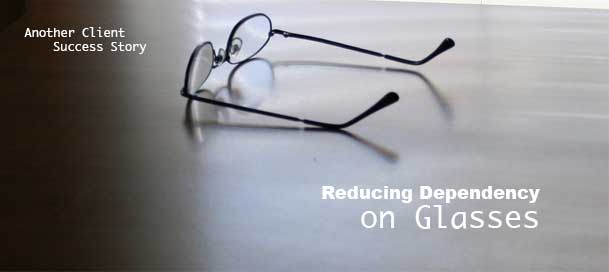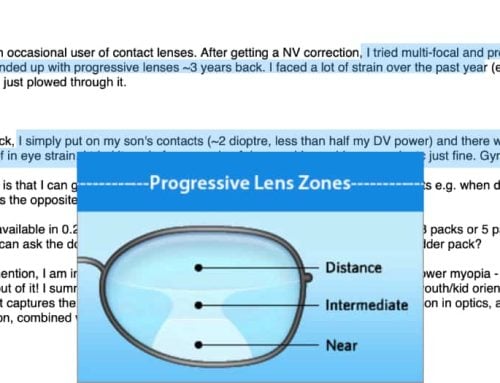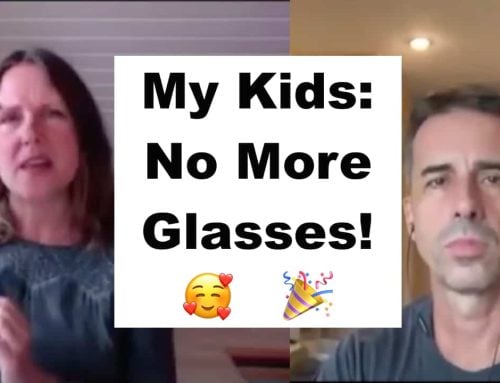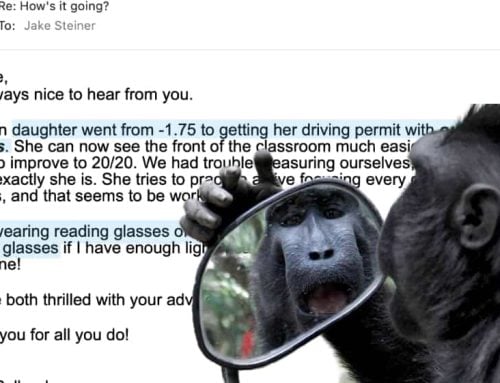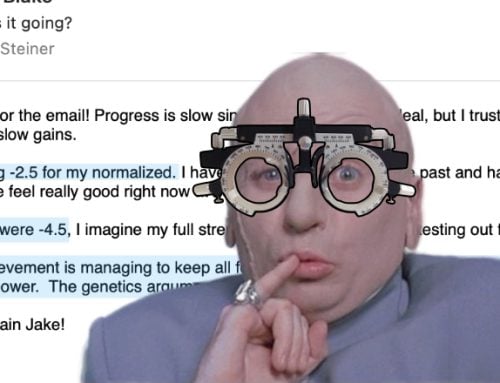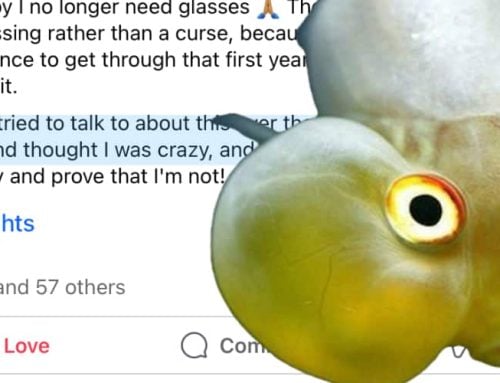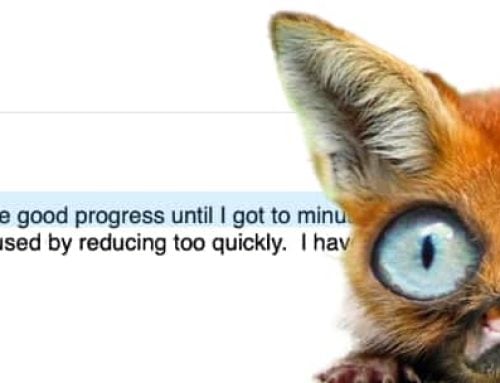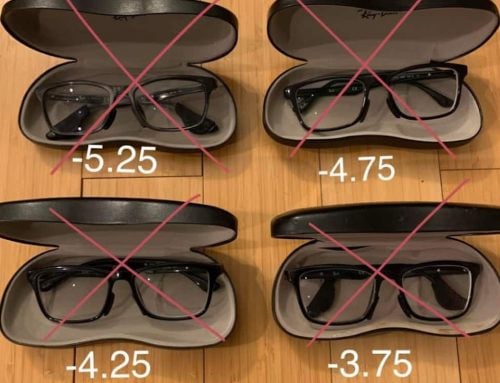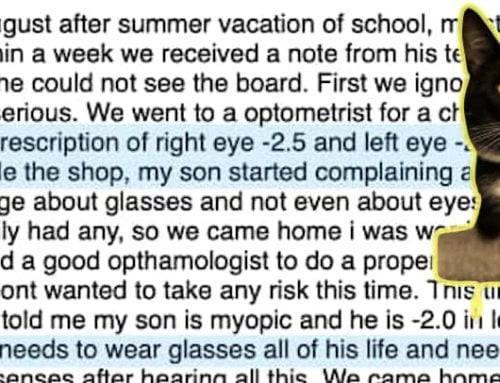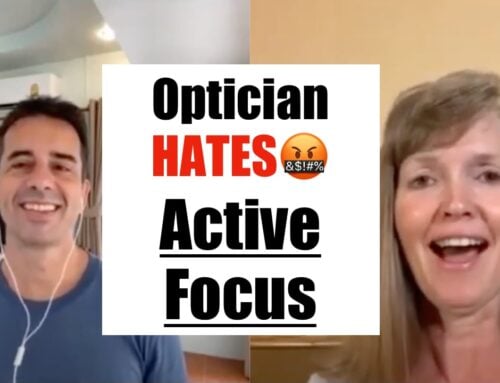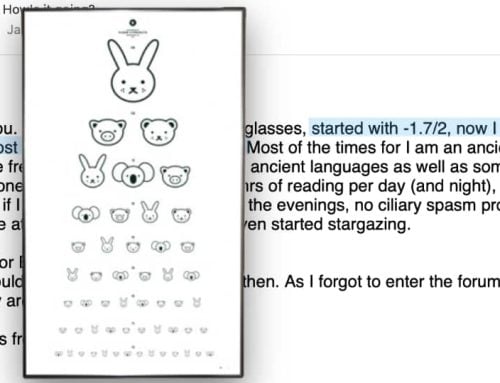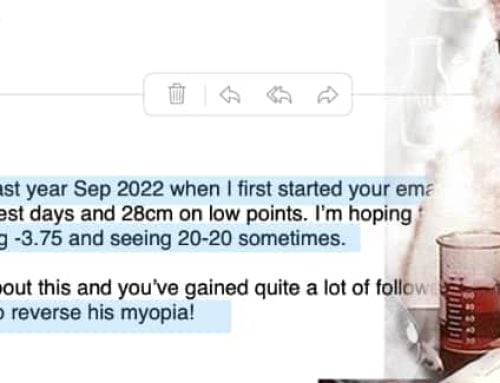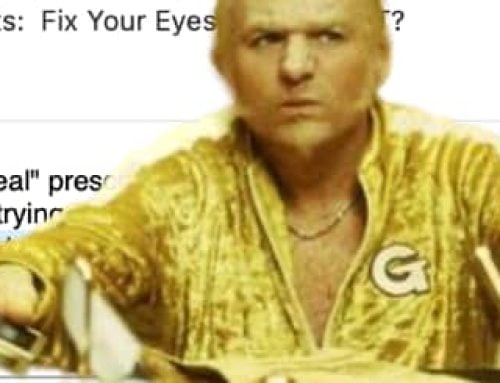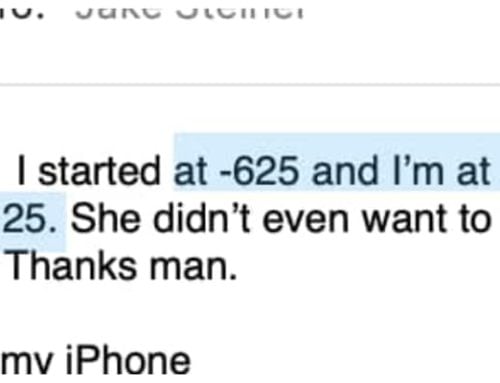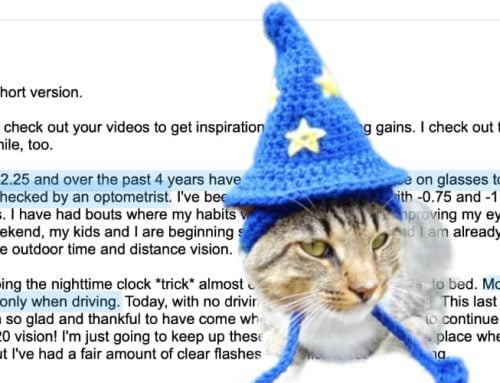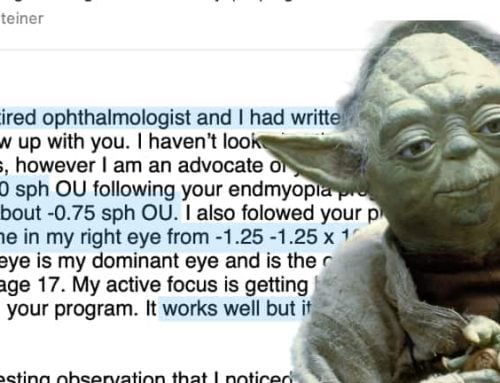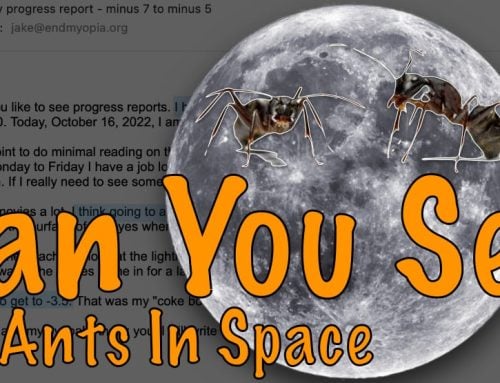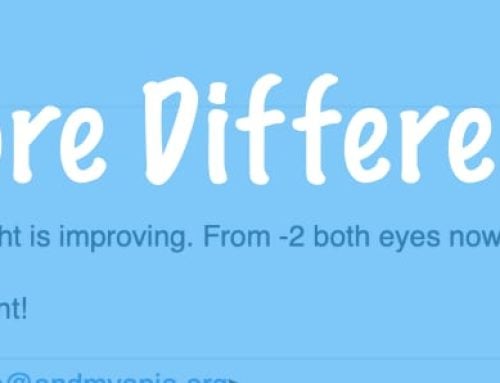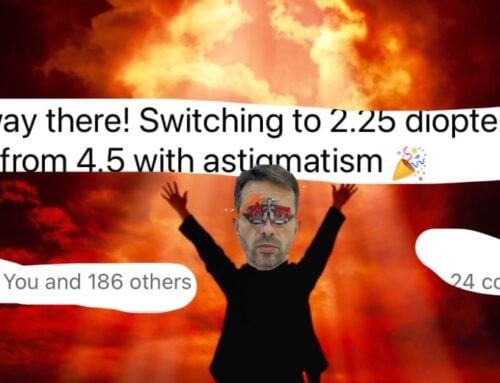When we discuss vision improvement goals with clients, there is the general consensus that most individuals would like to ‘see better without glasses’, and to avoid having to get stronger glasses. It is often not until their vision actually improves, that they notice more specific benefits, that impact quality of life.
I have heard many account of clients describing the quality of the image as superior, without glasses, rather than with (in low myopia cases, if they have improved notably, in particular). While the distortion caused by glasses or a contact lens may be fairly minimal, it does have a definite impact on the quality of what you see – something you can not realize until you have a frame of reference.
For example, if you have reduced your myopia from a -2.75 to a -1.25, you can now see outdoors, in good sunlight, quite well without glasses. You can now compare images, and notice how your eye responds. You may actually note that you can see almost as well without glasses, as you can see with them. You may notice a difference in a “strain free” sense, when you are not wearing the glasses.
For higher myopes, there are many accounts of reduced symptoms of depression, and a brighter image, as their myopia reduces.
One of my favorites though, often mentioned with great excitement, is a story just like the one Gabriel recently posted in the forum. Let’s take a look:
I read the 20/20 line today.
I rolled out of bed and looked at he clock. The black and red numbers looked particularly bright in the morning. After I shut my alarm off I made an observation. I”m seeing very well, I thought. And I wanted to know just how well so I hauled out the snellen chart and gave it a glance.
I decided to take it outside as it was a warm fall day with the sun shining on my back. I measured out twenty feet and wondered what I could see. Instantly, the 20/50 line jumped out at me. Then I spent ten minutes or so trying to bring the other lines into focus. Eventually I got down to 20/20. I wore glasses for 20 years and I just read 20/20 in about a month of vision recovery.
Contrast this to a few months ago when I misplaced my glasses. I was nearly blind, I thought. I stumbled around my house searching for my missing spectacles acutely aware of my impairment. I got distraught. After a few hours I started tearing up and having a panic attack which was only stopped by finding my glasses sitting on a chair I had looked over a dozen times or more but couldn’t see.
Now I’m rarely using glasses even though my vision isn’t truly 20/20. Indoors, it varies from 20/50 to 20/100 so I don’t think my myopia has been cured in a month. What has happened is that I’ve gained a lot of confidence going without my glasses for most of the day and this feeling of being able to function without them is great. First, the tension headaches that I used to get on a regular basis are gone. Now, when I use my reduced prescription for computer work It’s easy to become aware of the strain on my eyes. Second, is the knowledge that I can see a lot better than I thought I could. And without glasses it’s really seeing. Not seeing through a pair of binoculars strapped to my face.
I’m working on clearing the snellen indoors with reduced lighting. I want to clear the DMV chart which means I need to see 20/40 or better and focus a lot faster than I normally do and in less than optimal lighting. So I’m trying to hammer in good vision habits, limiting glasses and close up focus, going for an hour walk every and staring at the hills, the trees, and watching all the cars go by in my periphery. I try to work at the edge of blur for several hours a day and I’m always trying to figure out what this active focus thing is. I’ll get it, I’m sure.
The important thing is I can see and it’s wonderful.
You can find the forum topic here.
This, to me, is one of the main reasons to work on improving your eyesight. The first minus prescription, usually quite small,. is just a ‘vision enhancement’. You can go just fine without it. But as prescriptions invariably increase, the role of the glasses become more significant. You become dependent on glasses, for vision.
We are talking about vision not in a sense of improvement, but usability at large. Once you go past three diopters of minus prescription, things may be blurry enough to where you can’t find your glasses, in an indoor setting. Then you have reached the threshold of full dependency on the glasses, for usable eyesight.
We want to avoid this development, as much as possible (especially with child programs). And if it already happened, reversing myopia to below that threshold will give you back a meaningful relationship to your eyesight, minus that significant dependence.
And obviously this is an attainable goal, for most individuals. Gabriel is of course not at a stage where he has perfect vision without glasses, but he has already reduced his dependency – and can continue to do so, until he does in fact have perfect healthy, natural vision again.
Enjoy!

